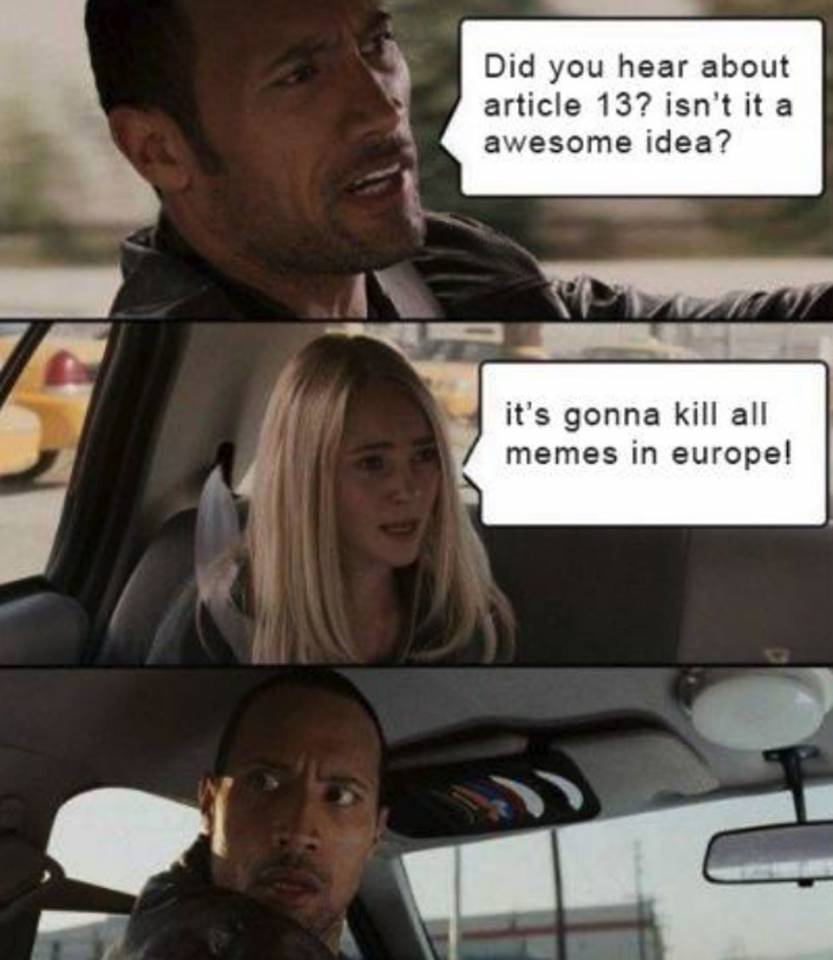Before the Facebook-Cambridge Analytica privacy scandal, Russian hackers taking over your webcam was the only thing you had to worry about online. Now, however, you have to contend with the fact that Zuckerberg has a cookie collection devoted exclusively to your every fetish…
The joys of bachelorhood.
Anyway, opinion is divided over the future of copyright and privacy laws in the EU, and members of the EU Legal Affairs Committee just voted to make them stricter. The stakes are high: according to EuroNews, “At issue is the modernisation of copyright rules for the digital age.”
The idea behind the initiative, which has been debated for two years, is to enable artists and authors to be more fairly remunerated for their work—and to keep social media giants in check.
“Nowdays the main problem is that user product content platforms such as YouTube, Facebook, Dailymotion, Vimeo, etc are not playing fair,” Véronique Desbrosses, General Manager of the European Grouping of Societies of Authors and Composers told EuroNews.
“They are using loopholes in the law not to remunerate creators and yet they have become the main route to access cultural content on the Internet.”
As you would expect, digital platforms are against the directive, “article 13,” which would require companies like Youtube and Facebook to remove content whose copyright they cannot verify.

“Article 13 is dangerous because it basically envisions that platforms have to block everything that people post that contains content that belongs to somebody else,” Anna Mazgal, Wikimedia’s EU Policy adviser, told EuroNews.
“We are worried about the vast majority of users that have the right to use somebody else’s content because they make parodies, because they make political commentary, because they quote.”
According to Reuters, this could mean the end for internet memes—which rely on the freedom of users to, “riff on other people’s photos, music or video.” Not only that, but some claim it could have the opposite effect to what the EU intends, eventually becoming just another tool to control and spy on users.
Green lawmaker at the European Parliament, Julia Reda, told Reuters the Commission’s decision would only benefit large media companies.
“The intentions may be good but the methods to address the issue are catastrophic and will hurt the people they want to protect.”
Wikipedia founder Jimmy Wales concurred, warning Reuters that filters, “Could create the basis for more invasive monitoring of all internet content, while new types of exclusive rights would limit the ways that people share information on the web.”
